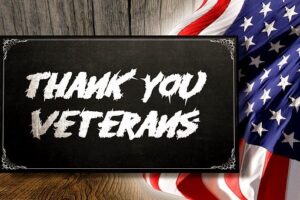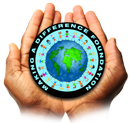
Regardless of which branch of service, or which job one held, all veterans are heroes! Without the selfless dedication, service, and sacrifice made by each military member (and their families), it’s hard to say where our country would be right now.
The brave men and women who have served in the past gave so much to keep our country safe, strong, and protected. While so many military personnel didn’t make it home and made the ultimate sacrifice, there are so many more who did make it home but continue to pay a price that most people will never know or understand. From health issues caused by their service, mental health challenges, PTSD, poverty, hunger, and homelessness, so many veterans struggle when this country owes them so much.
While the number of veterans continues to decrease each year as older veterans of World War II pass on, there are an estimated 19 million U.S. veterans, according to data from the Department of Veterans Affairs. These veterans represent less than 10% of the total U.S. adult population and about 11% are women, a demographic on the rise. According to the U.S. Census Bureau, Post-9/11 veterans had a 43% chance of having a service-connected disability, and among veterans with a
service-connected disability, Post-9/11 veterans had a 39% chance of having a disability rating of 70% or more — significantly higher than for veterans from other periods.
Other sobering statistics show that of these veterans, many struggle to provide the most basics of needs for themselves and their families. Feeding American reports 27% of households they support have a veteran or someone that has served in the military and 27% of veterans of the wars in Afghanistan and Iraq have struggled to provide food for their families. A study from Cambridge University showed that more than 25% of veterans reported food insecurity with 12% reporting “very low food insecurity.” This same study also pointed out that food insecure veterans were more likely to be younger, not married or partnered, living in houses with children, have lower incomes, and are more likely to engage in tobacco use and more frequent binge drinking. And it is also reported that there are 37,252 veterans experiencing homelessness, according to the U.S. Department of Housing and Urban Development.
Food insecurity and homelessness among veterans often stems from the mental health issues that rise from their military service. It can be incredibly difficult adapting back to civilian life after military service, especially for those men and women who lack support from their family, friends, or our very own government.
It is disgraceful that any veteran should struggle or do without the basic necessities in life. They should be taken care of after their service and yet many are left alone to transition back after their traumatic experiences.
So, not only this Veteran’s Day, this November, but every month, every day, we challenge those within the community to recognize the honorable veterans among us and the struggles they face. Certainly, thank them for their service. But we also challenge everyone to do more to show appreciation for their sacrifices and the freedoms we continue to enjoy because of their service and show they are supported in the basics of life.
How?
- Donate to your local food bank, like the Eloise’s Cooking Pot Food Bank, which provides food free of charge to veterans, military personnel, and their families who are experiencing hunger.
- Visit your local VA facility (depending on COVID-19 rules and protocols, of course) and visit with wounded heroes, many who may not have family or friends close by to visit with them.
- Offer to provide transportation to local vets so they can get to their medical and mental health appointments, or get to and from social or resource appointments, as well as to local food banks or grocery stores.
- Offer up your time and skills to help a veteran in need, whether that is cooking a meal, helping with home repairs, or doing household chores, especially for disabled veterans.
- Make a financial donation or donate your time to veteran organizations like the American Legion or VFW. Visit https://www.va.gov/vso/, https://www.military.com/veteran-jobs/career-advice/military-transition/nonprofit-organization-for-veterans.html, or https://www.defense.gov/Resources/Veteran-Support-Organizations/ for listings of more organizations that support veterans.

